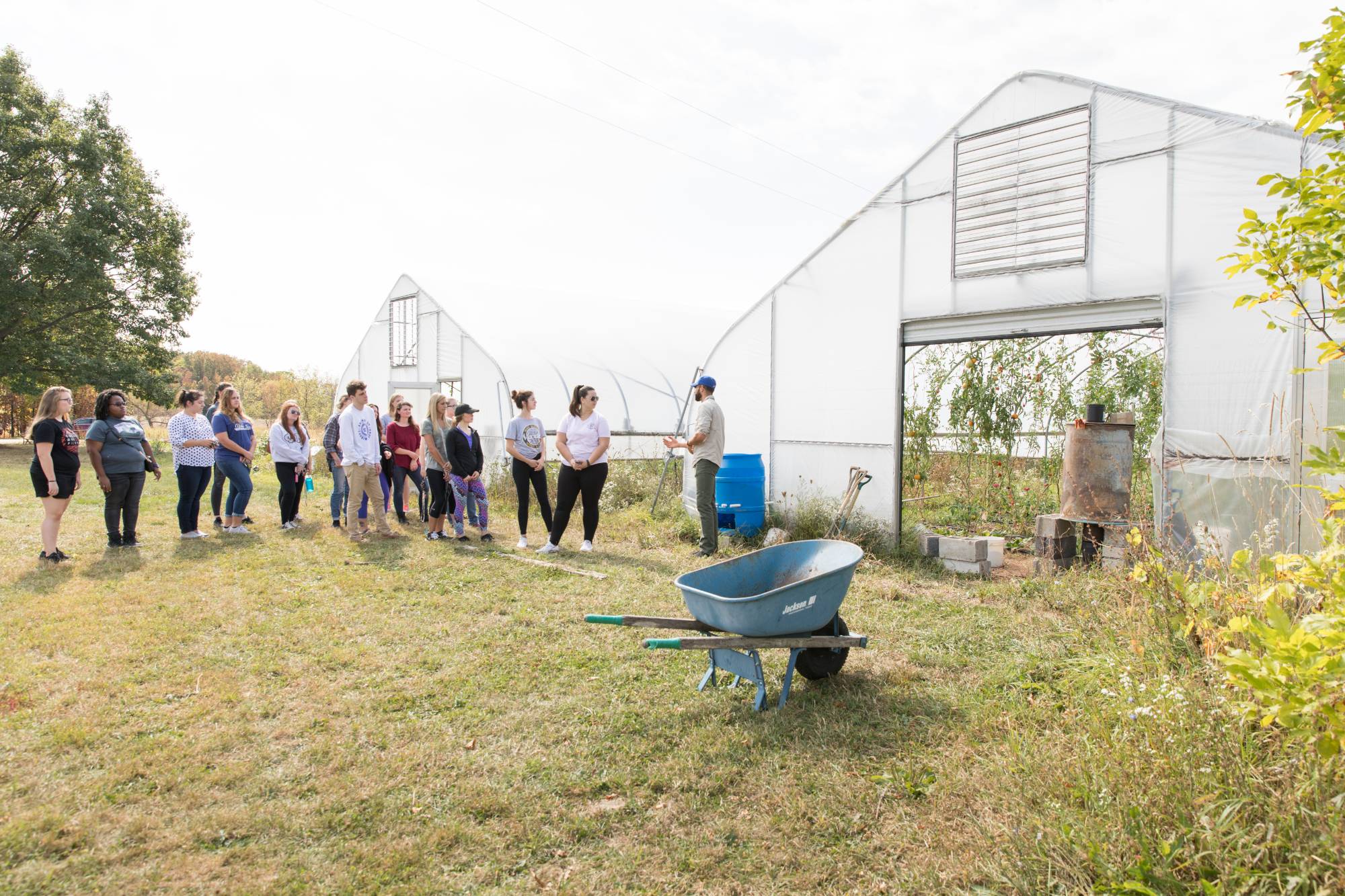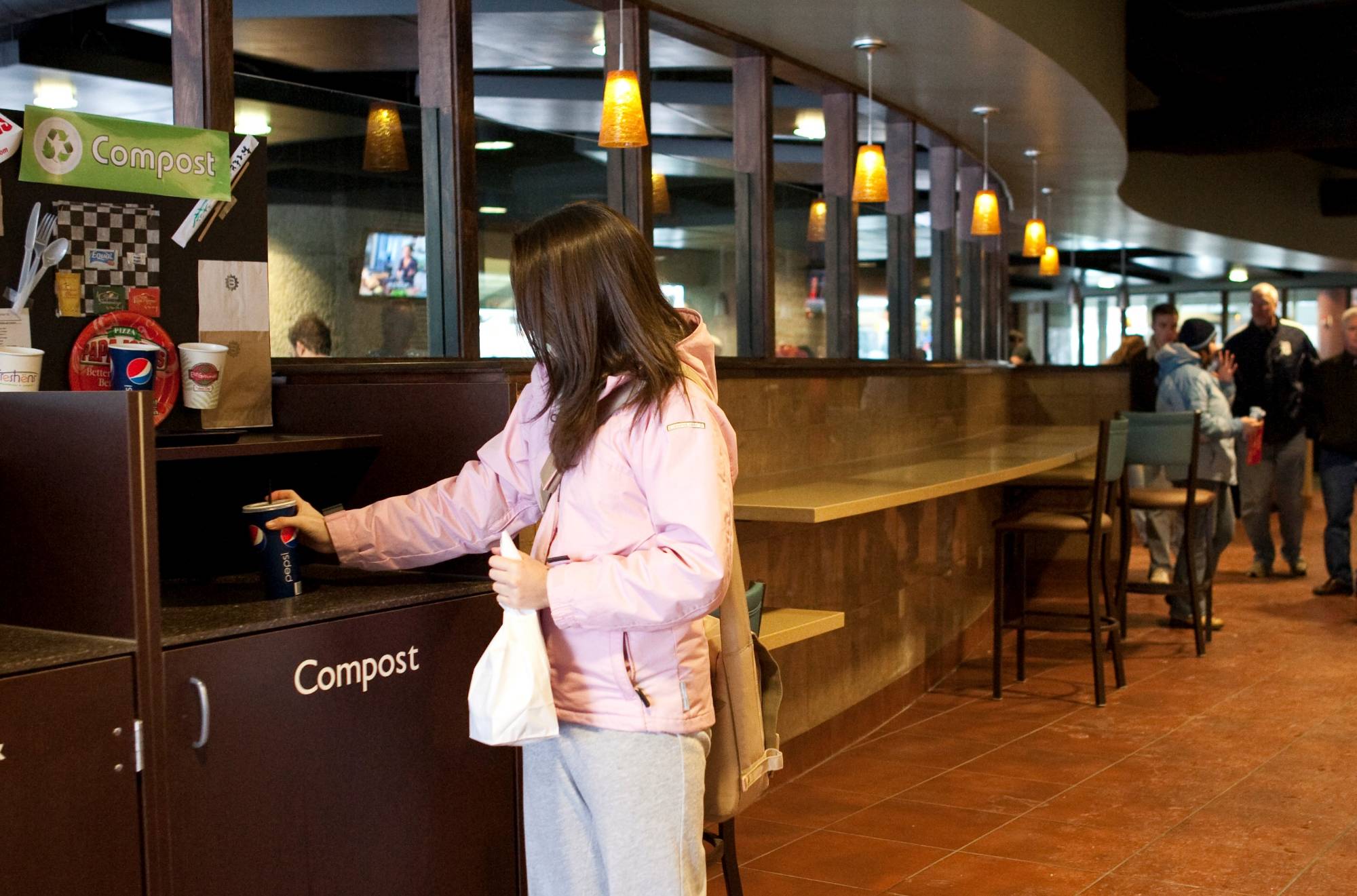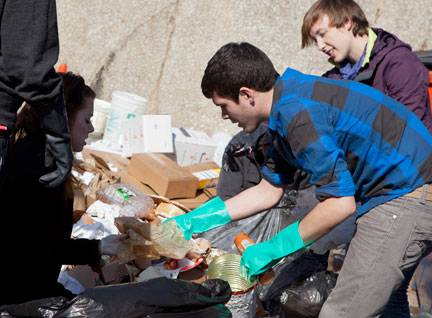Waste Sorting
Not sure where to throw your trash?
Help keep GVSU a sustainable place by utilizing the waste sorting stations for compost, recycling, and landfill at all Laker Food Co locations. The average human being produces about 4.4 pounds of garbage per day - lets work together to ensure that most of that does not go into the landfill!
Grand Valley participates in Zero Waste Football Games, an annual event every football season that strives to have as little landfill waste as possible at each game. If you are an individual or student organization interested in volunteering at one of our Zero Waste Football Games, contact [email protected]
Still have questions? Call us at 616-331-7366.
Composting
What is it?
Compost is made up of decomposed organic material, such as leaves, grass clippings, and kitchen waste. It provides many essential nutrients for plant growth and therefore is often used as fertilizer. The U.S. EPA says about 24 percent of our waste is organic material that can be composted. The main benefit of composting is that it improves soil structure so that soil can easily hold the correct amount of moisture, nutrients and air.
What we compost:
- All food waste
- Paper plates
- Paper cups
- Napkins/paper towel
- Pizza boxes
- Compostable products (this includes the straws and lids from Campus Dining locations)
- Utensils

If you live off campus, you can still collect your compost materials in a bin and then drop them off at the Sustainable Agriculture Project Farm located on Luce St. right off of campus.
Recycling
Why?
When plastics, aluminum, and other recyclable items go to landfill, harmful chemicals and greenhouse gases are released into the air from these sites. Recycling helps to reduce the amount of pollution caused by waste, it saves energy, and it saves landfill space on this beautiful earth. Recycling also reduces the amount of plastics that go into our ocean and affect the marine life.
What we recycle:
- Aluminum
- Glass
- Plastics #1-7
- Newspaper
- Cardboard
- Computers
- Batteries
- Foil wrappers (in the Sustainability Office)
- Markers (in the Sustainability Office)

Recycling bins are located throughout the housing units, classrooms, student centers, and office buildings.
Landfill
What?
Landfills are a place to dispose of refuse and other waste material by burying it and covering it over with soil, especially as a method of filling in or extending usable land. Of the 4.4 pounds of waste produced by humans every day, about 91% of that inevitably ends up in the landfill.
Check out our homepage for our TOP 10 TIPS to stay sustainable and reduce your waste on campus!
Landfill items:
- Chip bags
- Foil wrappers
- Non-recyclable plastics (products without a recycling symbol)
- Food service gloves
- Styrofoam
- Rubber

When in doubt, look for sorting chart, message us, or simply ask someone!

